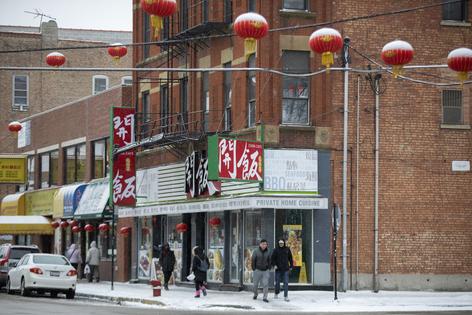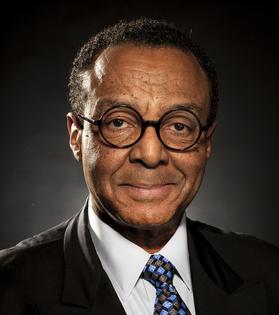A Surge of Violent Crime Against Asian Americans Sparks Fear of Renewed Racism
I don’t want to spoil the party, but amid the hopeful signs that we might — just might — be turning the corner on the coronavirus pandemic, let us not overlook how much COVID-19-related racial rhetoric has fueled a pandemic of hate crimes too.
With a guarded sense of relief, I welcomed the news that Oakland, Calif., police arrested a suspect in connection with the brutal and cowardly attack of a 91-year-old man in that city’s Chinatown.
And, as an African American, I also was particularly appalled to see in viral video of the incident that the man who walked up behind the elderly victim, pushed him to the ground and kept on walking was a Black man. I didn’t need to be reminded that racism is not a malady for whites only, but it’s the truth. The truth may not always set us free, but it’s the best place to start.
That’s why a wide range of Asian American activists, Hollywood stars and allies have been trying to draw attention to the reported surge in violent attacks and everyday insults aimed at Asian Americans since the COVID-19 rise.
“Crime against Asian Americans was not nonexistent before but it was more random, not tied to a national trend,” Mabel Menard, a Chinese American and president of Chicago’s chapter of OCA-Asian Pacific American Advocates, told me. “In a way, COVID gives people (a sense of) permission to act out their prejudices.
“Throughout history there’s always a group that gets blamed for everything bad and right now it seems we’re the target. With COVID, they’re blaming China and by proxy blaming Asian Americans. Less noticed is how a lot of Asians have come down with COVID too.”
Among other episodes caught on camera in less than a week, an elderly Thai man was attacked and later died in San Francisco, a Vietnamese woman was assaulted and robbed of $1,000 in San Jose, and a Filipino man was attacked with a box cutter on a New York City subway.
Although racial motives to these crimes were not explicit enough to lead to hate crime charges, the apparent surge in such cases during these pandemic times has raised understandable alarm, particularly among Asian Americans.
Such was the case in Chicago, when hundreds of members of the Chinese American community turned out in December to mourn the death of Shuai Guan, a 33-year-old father, who was killed in a failed carjacking attempt.
In an attempt to measure and analyze episodes of hate, violence, harassment and discrimination, a joint effort by the Asian Pacific Policy and Planning Council, Chinese for Affirmative Action and the Asian American Studies Department of San Francisco State University last March launched the Stop AAPI Hate reporting center, referring to Asian Americans and Pacific Islanders. By October, the organization’s most recent update, they received 2,583 reports nationwide.
Similar episodes and rising tensions have been reported in Chicago’s Asian American communities since the pandemic’s early days. Like members of the Asian American community, I’ve seen this before.
I remember when Vincent Chin in Detroit was killed in a 1982 hate crime by two white autoworkers who blamed Asians for the loss of their auto factory jobs to Japanese competitors. Adding to the senselessness of the racial attack, Chin was Chinese American. The defendants pleaded guilty to manslaughter and were sentenced to three years probation and a $3,000 fine. Neither spent a day in jail.
Chin’s death had a galvanizing impact on civil rights activism that reminded me of the energizing effects that Emmett Till’s racist murder in 1955 had on the civil rights movement and Matthew Shepard, killed in Wyoming in 1998, had in energizing the LGBT rights movements.
Every Chinese American I’ve talked to recently cited former President Donald Trump’s insistence on calling the coronavirus the “Chinese virus” or the “Kung-Flu” as problematic. But others have done the same, including House Minority Leader Kevin McCarthy, who in March called it “the Chinese coronavirus.”
One leading group, Asian Americans Advancing Justice, has begun to offer “bystander intervention” and conflict de-escalation training to help all of us become advocates for Asians and other targets of discrimination.
Andy Kang, AAAJ’s executive director in Chicago, recounted recent meetings he had with Muslim community leaders who reminded him that we should not expect this current racist wave to blow over soon.
“Twenty years after the Sept. 11 terrorist attacks, they told me, they’re still getting anti-Muslim hate incidents directly related to that single event,” he said. “It’s not the next year or two but more like a decade, at least, that we can expect this problem to still be with us.”
Indeed, the most hopeful thought I have was given by Amanda Gorman in her wonderful presidential inauguration poem. “Somehow,” she said, “we’ve weathered and witnessed. A nation that isn’t broken but simply unfinished …” Yes, we still have a lot of work to do.
========
(E-mail Clarence Page at cpage@chicagotribune.com.)
©2021 Clarence Page. Distributed by Tribune Content Agency, LLC.
(c) 2021 CLARENCE PAGE DISTRIBUTED BY TRIBUNE MEDIA SERVICES, INC.










